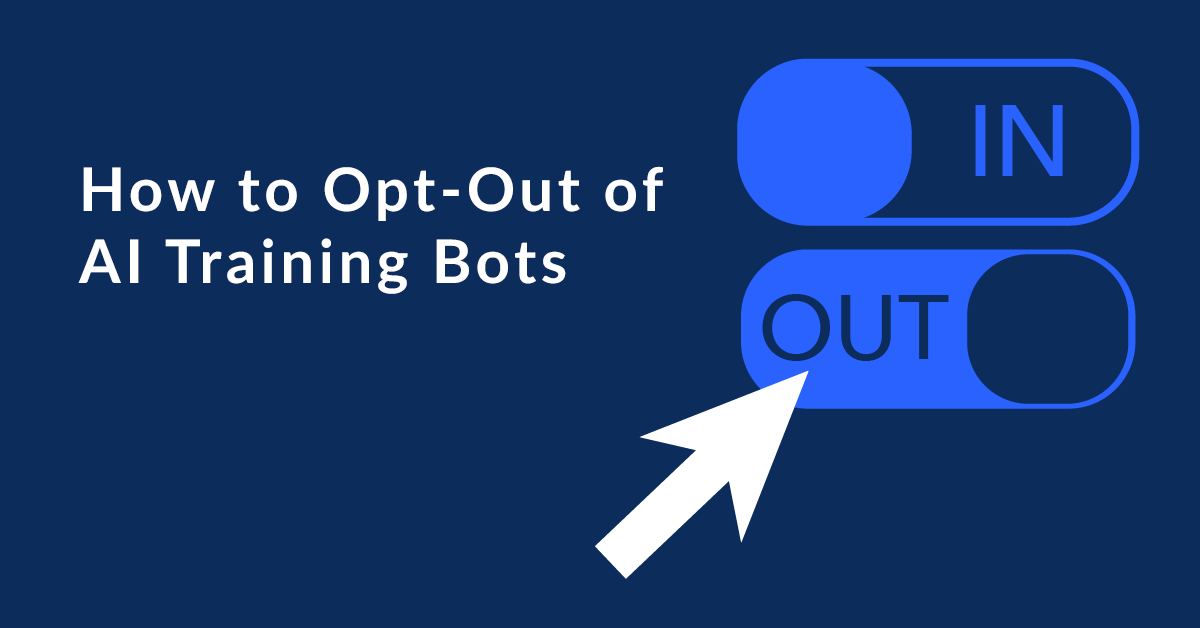The Impact Of Opt-Out On Google's Search AI Training Data

Table of Contents
The Role of User Data in Training Google's Search AI
Google's search AI, a sophisticated system built on machine learning and deep learning, thrives on data. The sheer scale of data involved—billions of searches, browsing histories, and other interactions—fuels its ability to understand and respond to user queries with remarkable accuracy. This data is essential for several key aspects of Google's AI:
- Improved search relevance through pattern recognition: By analyzing user search patterns, Google's AI identifies correlations between queries and clicked results, improving the ranking algorithm's accuracy.
- Personalized search results based on user preferences: Your search history and browsing data allow Google to tailor results to your specific interests, providing a more personalized and efficient search experience.
- Enhanced understanding of natural language queries: The vast amount of data allows the AI to learn the nuances of human language, enabling it to understand complex and ambiguous queries more effectively.
- Development of advanced features like Google Assistant: The same data that powers search also underpins the development of voice assistants, enabling natural language processing and contextual understanding.
The ethical implications of using personal data for AI training are significant. While providing a more refined and personalized search experience, the collection and use of this big data raise crucial questions about data privacy and the potential for misuse. Striking a balance between user experience and data protection is a key challenge for Google and other tech giants.
Understanding User Opt-Out Mechanisms and Their Limitations
Users have several options to limit Google's data collection, including adjusting privacy settings within their Google accounts, using browser extensions that block tracking, and employing incognito mode for browsing. However, the effectiveness of these opt-out methods is debatable:
- Effectiveness of various opt-out methods: While these methods can reduce data collection, they rarely eliminate it entirely.
- Data Google may still collect even with opt-out enabled: Google may still collect some anonymized data for aggregate analysis or to ensure service functionality.
- Challenges in completely removing data already collected: Once data is collected, completely removing it is technically challenging and often impossible due to data retention policies and the distributed nature of Google's systems.
Data anonymization techniques aim to remove personally identifiable information from datasets. However, advancements in data re-identification techniques raise concerns about the true effectiveness of anonymization. The ongoing debate surrounding data privacy, coupled with regulations like GDPR and CCPA, highlights the complexity of balancing data utility with individual rights.
The Effect of Reduced Data on AI Model Accuracy and Bias
A reduction in data diversity due to widespread opt-out can have a significant impact on Google's search AI, affecting both its accuracy and fairness:
- Potential for skewed search results due to underrepresentation of certain user groups: If certain demographics opt out more frequently, the AI might become less adept at understanding and serving their information needs, leading to biased results.
- Reduced ability to personalize search for users who opt out: Opting out significantly limits the AI's ability to personalize search results, potentially offering a less relevant and efficient search experience.
- Impact on the development of new AI features: Limited data can hinder the development and refinement of new features and functionalities that rely on diverse and representative datasets.
Algorithmic bias, a significant concern in AI, arises from biased datasets. A lack of representation from various user groups can lead to AI systems that perpetuate existing inequalities. Ensuring fairness and equity in AI requires careful attention to data diversity and the development of methods to mitigate bias.
Future Implications and Potential Solutions
Widespread opt-out could significantly impact Google's search AI capabilities. However, several potential solutions can mitigate negative consequences:
- Development of privacy-preserving AI training techniques (e.g., federated learning): Federated learning allows AI models to be trained on decentralized data, reducing the need to centralize sensitive information.
- Greater transparency in Google's data collection and usage practices: Clearer communication about data usage can empower users to make more informed decisions about their privacy.
- Improved user control over data sharing: Providing users with finer-grained control over what data is shared and how it's used is crucial for building trust and promoting responsible data handling.
Ongoing research in privacy-preserving machine learning, including techniques like differential privacy, holds promise for enabling AI training without compromising user privacy. Stronger data governance and improved user education are also vital for navigating the ethical and practical challenges posed by AI and data privacy.
Conclusion
User opt-out choices significantly impact Google's search AI training data, potentially affecting the accuracy, fairness, and future development of AI-powered search. Understanding the trade-offs between personalized search and data privacy is crucial. We've explored the role of user data in training AI, the limitations of current opt-out mechanisms, and the potential consequences of reduced data diversity. To make informed decisions, learn more about Google's AI training data and manage your privacy settings effectively. Understand the impact of your opt-out choice on the future of search.

Featured Posts
-
 Is Golds 2025 Bull Run Over Two Weeks Of Negative Returns
May 05, 2025
Is Golds 2025 Bull Run Over Two Weeks Of Negative Returns
May 05, 2025 -
 Lets Rewatch The Gta Vi Trailer A Frame By Frame Look
May 05, 2025
Lets Rewatch The Gta Vi Trailer A Frame By Frame Look
May 05, 2025 -
 New Parent Max Verstappen Ready For Miami Gp
May 05, 2025
New Parent Max Verstappen Ready For Miami Gp
May 05, 2025 -
 Blue Origin Postpones Launch Investigation Into Subsystem Problem
May 05, 2025
Blue Origin Postpones Launch Investigation Into Subsystem Problem
May 05, 2025 -
 Identifying And Analyzing The Countrys Newest Business Centers
May 05, 2025
Identifying And Analyzing The Countrys Newest Business Centers
May 05, 2025
Latest Posts
-
 Another Simple Favor Director Denies On Set Tension Between Stars
May 05, 2025
Another Simple Favor Director Denies On Set Tension Between Stars
May 05, 2025 -
 Premiere Fashion Face Off Blake Lively And Anna Kendricks Understated Style
May 05, 2025
Premiere Fashion Face Off Blake Lively And Anna Kendricks Understated Style
May 05, 2025 -
 Subdued Glamour Blake Lively And Anna Kendricks Premiere Competition
May 05, 2025
Subdued Glamour Blake Lively And Anna Kendricks Premiere Competition
May 05, 2025 -
 Anna Kendricks Silence On Blake Livelys Legal Case
May 05, 2025
Anna Kendricks Silence On Blake Livelys Legal Case
May 05, 2025 -
 The Blake Lively Anna Kendrick Feud Fact Or Fiction A Chronological Examination
May 05, 2025
The Blake Lively Anna Kendrick Feud Fact Or Fiction A Chronological Examination
May 05, 2025
